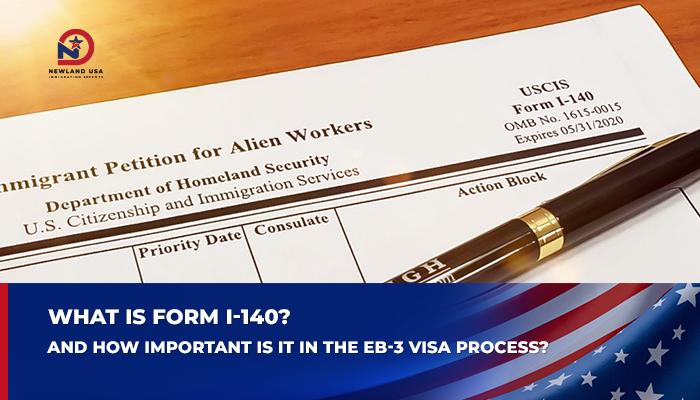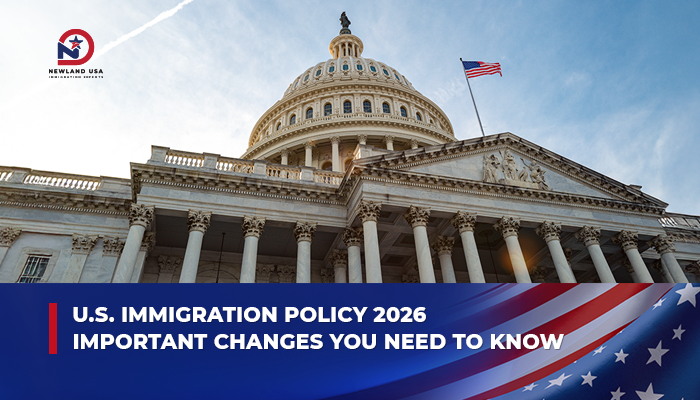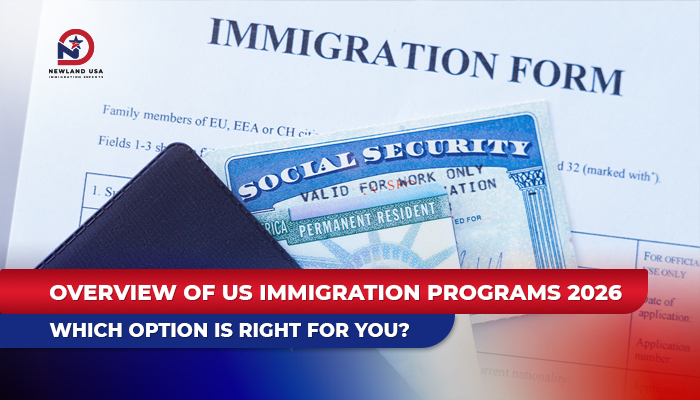8 Common Mistakes That Cause EB3 Visa Applications to Be Delayed for Extended Periods
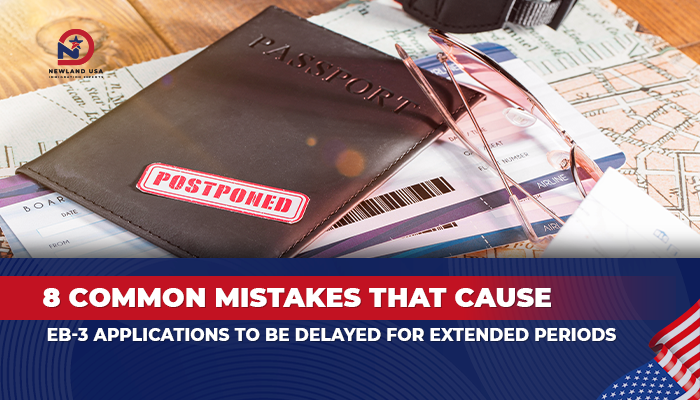
The process of applying for an EB3 Visa to immigrate to the US through EB3 typically takes 3-7 years depending on the category the worker chooses, but many cases experience even longer waiting times due to avoidable mistakes in their applications. Statistics show that each month, numerous EB3 applications are still delayed or rejected at various stages. This article from Newland USA will analyze the 8 most common mistakes that cause EB3 applications to be rejected or processing times to be extended, along with effective solutions to help you optimize your chances of success.
1. Why Are EB3 Applications Often Delayed and Experience Extended Processing Times?
The EB3 Visa program is one of the most popular pathways for workers to immigrate to the US through EB3. However, this is also a visa category with a complex process involving multiple strict review stages from the U.S. Department of Labor (DOL), U.S. Citizenship and Immigration Services (USCIS), the National Visa Center (NVC), and the Consulate.
Every small error in an EB3 application can lead to a Request for Evidence (RFE) or even complete rejection. Understanding the “difficult points” and preparing correctly from the start will help you save time and money while avoiding unnecessary risks.

2. 8 Common Mistakes That Cause EB3 Applications to Be Delayed
2.1. Inability to Prove Reasonable Financial Resources
One of the most serious mistakes is when applicants cannot prove their ability to support themselves initially in the US. Immigration authorities evaluate the applicant’s financial situation to ensure they won’t become a burden on the social welfare system.
Specifically, if you cannot provide evidence of stable income, bank statements, or legal assets, your EB3 application will be flagged as suspicious. Officers may believe you are hiding your actual financial situation.
Solution: Prepare complete and transparent financial documentation including bank statements from the past 6-12 months, property documents, and clear explanations of income sources.
2.2. Dishonest Health and Background Declarations
The EB3 Visa is an employment-based category requiring applicants to be in good health to perform the jobs requested by the employer. If you have chronic illnesses, have undergone major surgery, or have health issues but don’t fully disclose them, EB3 application rejection is inevitable.
Regarding criminal background, any criminal record – no matter how minor – must be fully declared. Serious traffic violations, legal disputes, or security-related issues all need to be clarified. Hiding or falsely declaring information can lead to serious consequences, including permanent entry bans.
Notably, criminal background checks must be verified not only in Vietnam but in all countries where you have lived for more than 6 months from age 16 onwards. Many EB3 applications are delayed due to missing documents from countries of previous residence.
Solution: Get a comprehensive health examination and honestly declare all medical issues. Prepare police certificates from all countries where you have lived and consult with an immigration attorney if you have legal issues in your past.
2.3. Qualifications and Experience Not Matching the Position
Each position in the EB3 immigration to the US program has specific requirements for education level and experience. For the Skilled Workers group, you need to prove at least 2 years of experience or relevant professional training. The Professionals group must have a bachelor’s degree or equivalent.
A common mistake is providing credentials not recognized by USCIS or work experience not directly related to the applied position. Many people think they can “beautify” their application by exaggerating experience, but this action is extremely dangerous and easily detected.
Foreign credential evaluation must be performed by USCIS-recognized organizations. If your credentials don’t equate to the U.S. education system, your EB3 application will face major obstacles during the review process.
Solution: Conduct credential evaluation through USCIS-recognized organizations, prepare complete evidence of actual work experience (contracts, insurance records, confirmation letters from previous companies).
2.4. Employer Lacks Financial Capacity
Not every business in the US qualifies to sponsor foreign workers under the EB3 Visa. The employer must prove they have sufficient ability to pay the committed wage over the long term through financial reports, corporate taxes, and current employee count.
If the company has unstable revenue or is experiencing financial difficulties, USCIS will reject the sponsorship application. Additionally, businesses that have been previously audited by the Department of Labor or USCIS will have a significantly higher rejection rate.
This issue becomes more serious when some companies operate non-transparently, or are even “shell companies” just exploiting EB3 applications. This is why choosing a reputable employer is extremely important.
Solution: Work with a reputable consulting firm to be connected with employers who have been thoroughly vetted for financial stability and long-term commitment.

2.5. Job Position No Longer Exists at Interview Time
One of the most unfortunate situations occurs when, at the interview stage, the job position is no longer available. This can happen for many reasons: the company closed, organizational restructuring, or another employee was hired as a replacement.
The EB3 immigration to the US process typically takes 3-7 years, during which time the company’s business situation can change completely. Some employers lack long-term commitment, only registering sponsorship to “experiment” without concrete plans for the recruitment position.
Solution: Choose an employer with a long operating history, stability, and actual recruitment needs. Maintain regular contact with the sponsoring company throughout the waiting process.
2.6. Unprofessional Application with Many Errors
EB3 applications are highly complex with hundreds of pages of documents and detailed information. Every small error can lead to a Request for Evidence (RFE), significantly extending processing time or resulting in complete rejection.
Common errors include: inconsistent personal information across documents, incorrect dates, missing signatures or notarizations, inaccurate translations. Particularly, work history declarations must be consistent from Form I-140 to DS-260.
What many people don’t realize is that USCIS has a very detailed information storage system. If you have previously applied for another visa (student, tourist) and declared information different from your current EB3 application, the system will automatically flag it and easily lead to rejection.
Solution: Work with an experienced immigration specialist, thoroughly check every detail before submission, ensure all information is consistent throughout all documents.
2.7. Unconvincing Reasons for Filing EB3 Application
USCIS needs to ensure you genuinely intend to work for the sponsoring employer, not just using the EB3 Visa as a “bridge” to enter the US and then change jobs. This is evaluated through the compatibility between your expertise and the job, as well as long-term career plans.
If your qualifications are too high for the job requirements, or you have credentials in a completely different field, officers may doubt your true intentions. For example, a software engineer with 10 years of experience applying to work as a packaging worker will be very difficult to justify.
Demonstrating understanding of the company, industry, and even the work culture in the US also contributes to increasing the persuasiveness of your EB3 application. This is why many experts recommend spending time researching thoroughly before applying.
Solution: Build a logical professional resume, clearly explain the reason for choosing this position, and demonstrate long-term development plans with the sponsoring company.
2.8. Interview Preparation Lacking and Inconsistent Responses
The interview stage at the consulate is the final and most important step in the EB3 Visa application process. Many perfect EB3 applications are still rejected because applicants didn’t prepare well for the interview.
The most common error is answering inconsistently with information declared in the DS-260 form. You should review your entire application before the interview, especially paying attention to “yes/no” questions or requests for detailed explanations.
Being evasive, vague, or not answering directly will make officers think you’re hiding something. Instead of focusing on wanting a green card, demonstrate enthusiasm about the job and your ability to contribute to the U.S. economy.
Solution: Practice answering common questions, prepare mentally to be confident, review all declared information, and maintain an honest, open attitude throughout the interview.
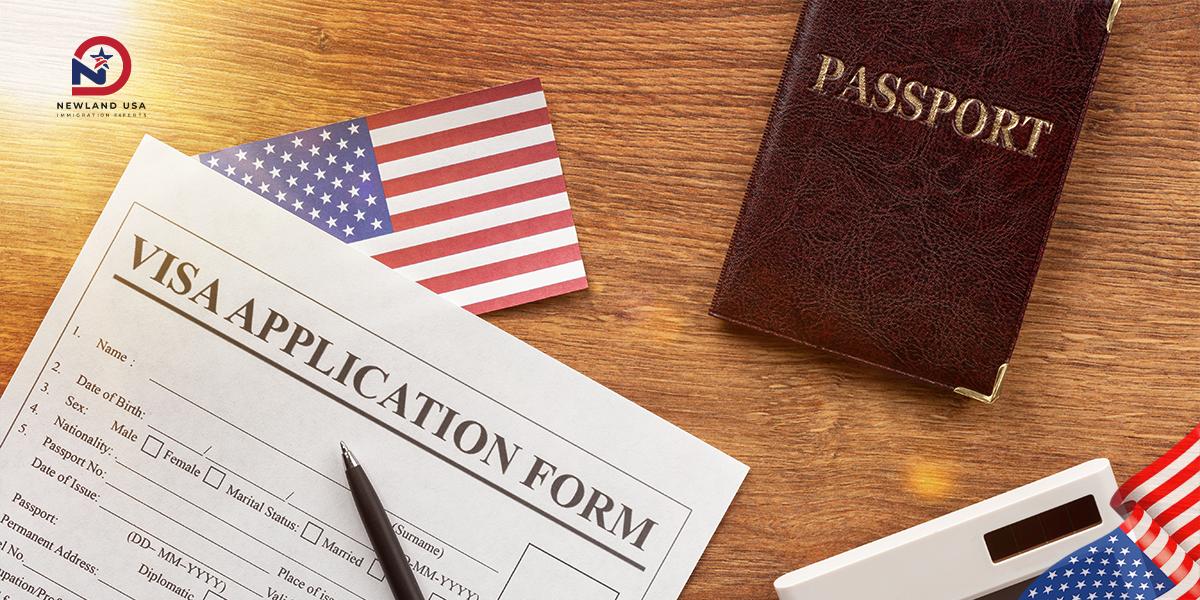
3. How to Handle Problems with EB3 Applications
Receiving notification of EB3 application rejection doesn’t mean all hope is lost. The first step is to stay calm and carefully analyze the rejection reasons stated in the official notice from USCIS or NVC.
Evaluate Appeal Possibilities: In some cases, you have the right to file an appeal within the specified deadline. However, the success rate of appeals is typically low and requires support from an experienced immigration attorney.
Prepare to Resubmit a New Application: If the rejection reason can be remedied, resubmitting an EB3 application with accurate information and supplementary missing documents is the top choice. The important thing is to thoroughly address the root cause that led to the first application’s rejection.
Change Employers: If the problem stems from the sponsoring company, you need to find a more reliable new employer. This is when the experience of a professional consulting firm shows its true value.
4. Conclusion
Understanding the 8 common mistakes that cause EB3 applications to be delayed or rejected is the first step to better preparing for your journey to immigrate to the US through EB3. From proving financial capability, preparing appropriate credentials, choosing a reputable employer, to practicing for interviews – each step requires caution and professionalism.
Newland USA, with our team of experienced specialists and the motto “Secure Settlement – Lifelong Prosperity,” is ready to consult and support you in preparing applications and accompanying you throughout the EB3 immigration to the US process. Contact Newland USA immediately via hotline 0785591988 or email: newsletter@newlandusa.asia for detailed and free consultation.
Learn more: The Most Frequently Asked Questions About EB3 Visa for U.S. Immigration – Updated 2025
Learn more: What should you prepare to increase your pass rate for EB3 Visa interview?
Learn more: Is Labor Export the Same as EB3 Immigration to the United States?







